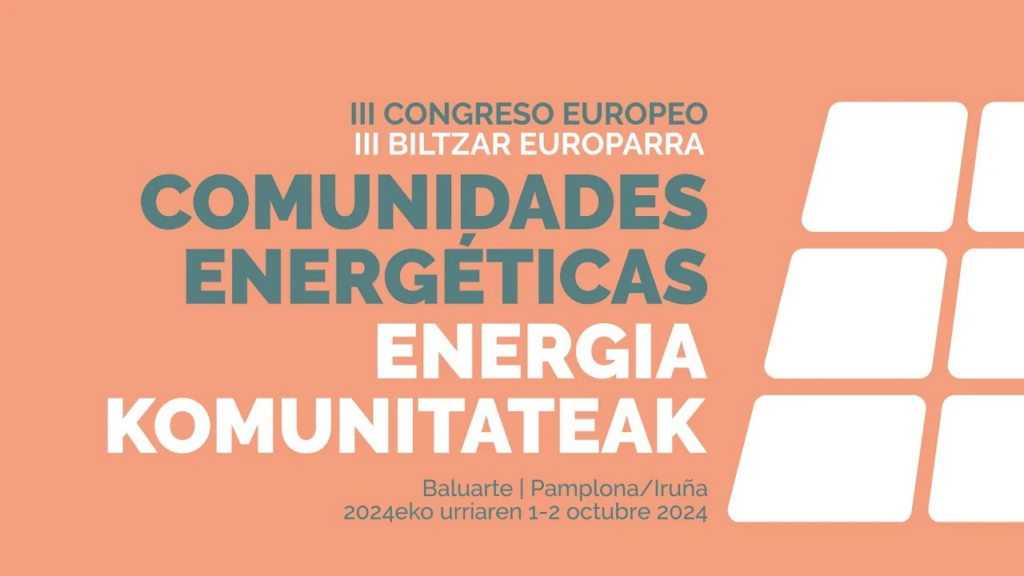
-
Facultade de Económicas
Universidade de Vigo
-
observatorio.eolico@uvigo.gal
-
The GWO Attends the 3rd European Congress of Energy Communities in Pamplona
- Home
- Wind World
- The GWO Attends the 3rd European Congress of Energy Communities in Pamplona

- by OEGA
- 0 Comments
On October 1st and 2nd, the 3rd European Congress of Energy Communities was held in Pamplona, an event organized by the Government of Navarra and hosted at Baluarte. The GWO participated as part of its commitment to the EC4RURAL project, with the goal of deepening its understanding of the dynamics and challenges facing energy communities in Europe.
By participating in various panel discussions, GWO representatives gained valuable insights into business models, regulations, and successful experiences that could be applied to their work in rural areas. This experience enabled them to identify new opportunities for collaboration and to learn about best practices in the creation and implementation of these energy communities. Their participation in the congress demonstrates GWO’s commitment to promoting sustainability and energy independence in rural areas.
During the congress, various key topics for the development of energy communities were addressed. Discussions focused on the role of Community Transformation Offices (CTO) in driving these initiatives, the “One-Stop Shop” concept to centralize and simplify services and procedures related to energy communities, the right to energy, social economy, and regulatory aspects related to electricity distribution, demand management, and the coordination of energy communities.

Among the key takeaways, GWO emphasized the need for a clear regulatory framework for the growth of energy communities. The lack of well-defined regulations has been identified as a significant barrier, creating uncertainty and complicating strategic decision-making. However, there is optimism that the new regulations under development will provide solutions that enable citizens to benefit from these initiatives. Once the rules are established, greater access to energy communities is expected, although challenges in implementation will remain.
Another key topic was the importance of broadening the audience for these initiatives. The discussion emphasized that the challenge lies not only in attracting those already engaged but in reaching a more diverse public. To achieve this, participants stressed the need to prioritize human connections over technical details, and to adopt an educational approach that simplifies energy concepts while fostering an emotional connection with the audience. It was also noted that slow-moving bureaucracy can be a barrier to public engagement, highlighting the importance of creating teams that can efficiently integrate and coordinate efforts.
The role of the social economy was also a central theme in the debate. Speakers emphasized that it is important not to wait for a strict regulatory framework to be defined before starting these projects. They highlighted that economic transformation is key to addressing the environmental crisis, advocating for an energy model centered on people and sustainability. Shared electricity generation represents a fundamental shift in how we interact with energy, and it is crucial to prevent this new model from being dominated by traditional sector players.
In conclusion, the congress underscored the importance of designing comprehensive proposals that combine economic, social, and environmental aspects, and of training professionals not only in technical areas but also in the human and community components of renewable energy. Additionally, continuous education on energy and legal matters was emphasized as essential to empowering more people and encouraging their active participation in energy communities.